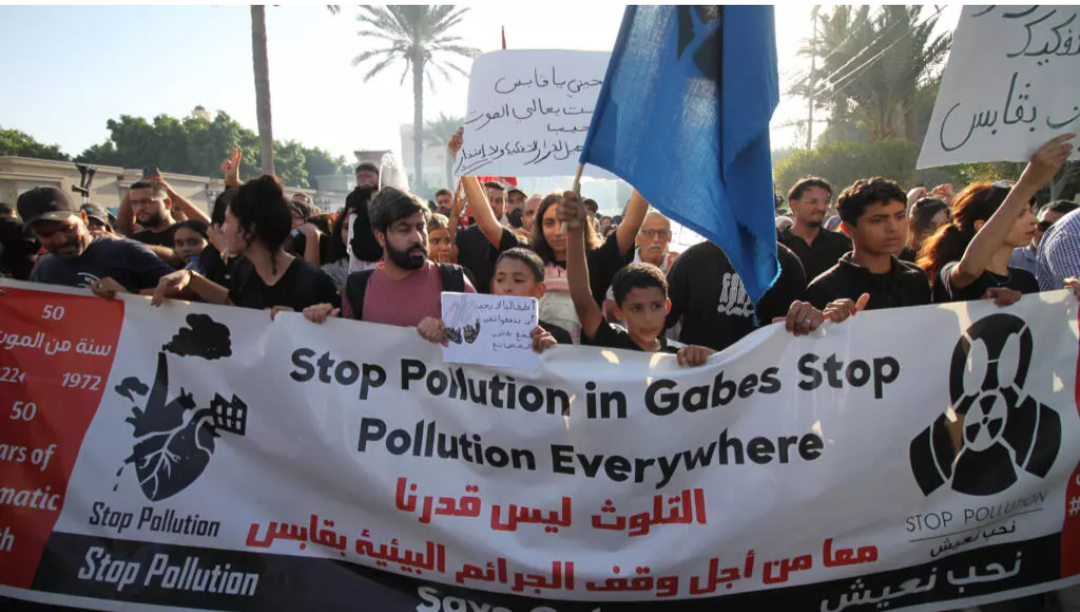For the past two weeks, the southern Tunisian city of Gabes has been gripped by widespread protests as residents take to the streets to denounce what they describe as a slow-motion environmental and health catastrophe. The demonstrations, fueled by frustration over years of unfulfilled government promises, have drawn hundreds of people—mostly young activists—calling for the closure of a state-owned phosphate processing plant accused of poisoning their city.
On Tuesday, the city of roughly 400,000 people came to a complete standstill. Shops, offices, and schools shuttered their doors while thousands of workers joined a general strike to amplify demands for environmental justice. Protesters waved banners, chanted slogans, and accused the authorities of sacrificing public health for profit.
At the heart of the outrage lies the government-run phosphate processing plant, long controversial for its toxic emissions. Environmental researchers have repeatedly warned that the facility’s industrial discharge contains radioactive material linked to serious health consequences, including an increased risk of cancer among local residents. The surrounding air, soil, and sea—once vital to Gabes’ fishing and agricultural economy—have all suffered measurable pollution damage.
“We can no longer breathe clean air or trust our water. The government is killing Gabes,” shouted one protester during a march this week.
The roots of the crisis trace back years. In 2017, Tunisian authorities pledged to permanently shut down the facility after public pressure peaked. However, earlier this year, that promise was reversed when the government announced plans to ramp up phosphate production, citing economic strain and employment needs. The decision ignited fresh anger, reigniting a movement that many locals believe symbolizes a broader neglect of southern Tunisia’s rights and wellbeing.
For decades, Tunisia’s phosphate industry has been central to its national economy, but environmental advocates argue that the cost to human health and local ecosystems has been devastating. Gabes—a coastal city known for its once-pristine Gulf waters—has borne the brunt of this trade-off.
As the protests continue, calls for international solidarity and regional environmental action are growing louder. Many Tunisians now see Gabes not just as a city under toxic assault, but as a symbol of the urgent struggle for environmental accountability across Africa.

Leave a Reply